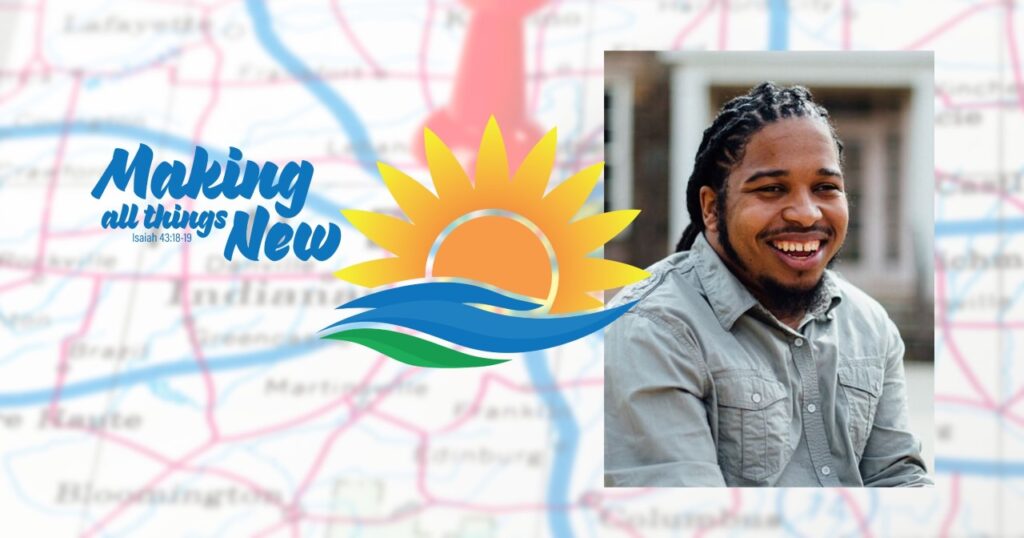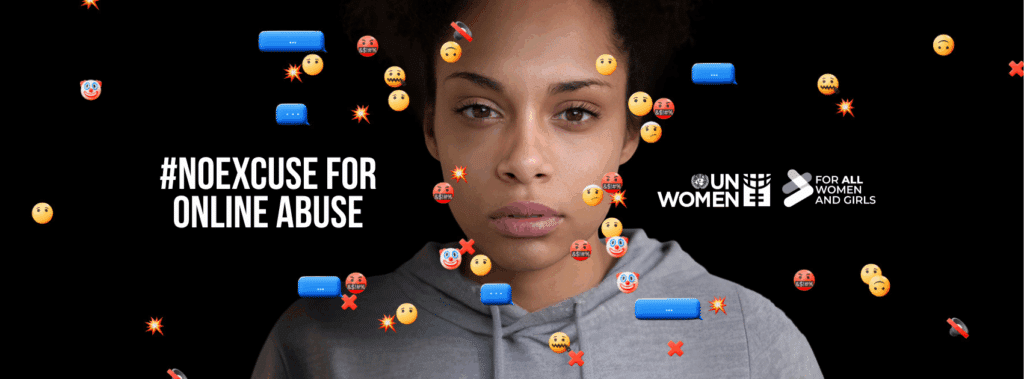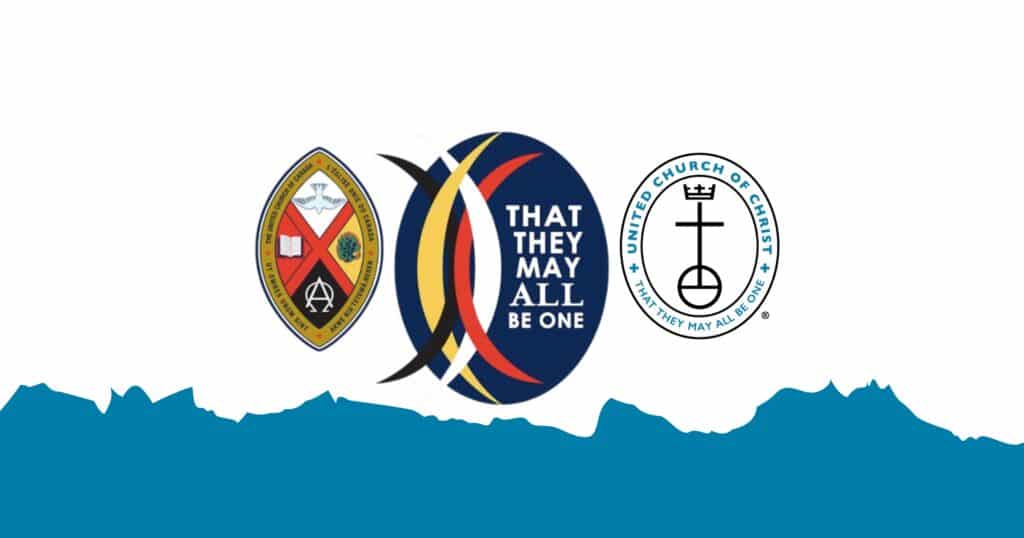Synod’s closing preacher will bring a word from ‘the intersections’
The day is still months away. But the Rev. JJ Flag said the thought of preaching at the closing worship service of the United Church of Christ’s 2023 General Synod already makes him a little nervous.
“I don’t know that I have settled on a particular message just yet,” he said. “I am honored to have been asked to preach at Synod and definitely humbled by the opportunity.”
Hearing him talk about the opportunity leaves one with the impression that he’ll definitely have a word to bring. Among the things on his mind these days:
- The need for community and “interconnectedness” in a world of increasing isolation — something he saw especially as a university and hospital chaplain.
- Disability-related work, which he called “integral to the work that I do as a minister.” “For me disability work is justice work,” he said. “I think that effective ministry, and ministry that is mirroring the ministry of Jesus, is ministry that starts at the margins and goes beyond.”
Flag, a board member of UCC Disabilities Ministries, will preach at the Synod’s closing worship service Tuesday, July 4, in Indianapolis. Registration will open in early January at the General Synod website. Registered visitors, like all delegates, will have access to worship services as well as the gathering’s many exhibits and business sessions at the Indiana Convention Center.
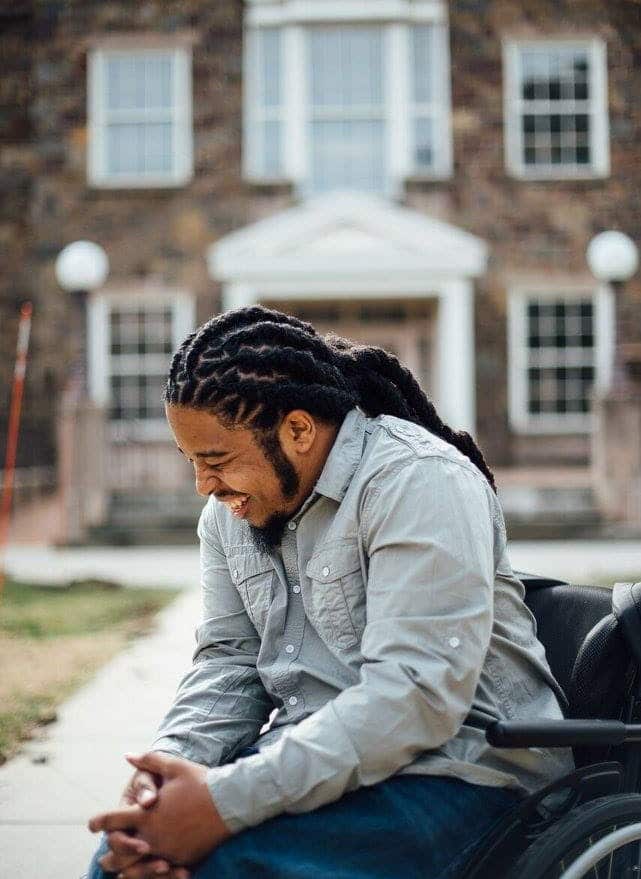
Baptist roots
Flag preached his last sermon at Emmanuel Congregational UCC in Watertown, N.Y., on Nov. 6, where he served as pastor for two years. Now he and his family are headed to Charlotte, N.C., where he starts work in December as associate minister for pastoral care and justice at Myers Park Baptist Church.
He has no plans to distance himself from the UCC. “I look forward to bringing some UCC flavor into this not-your-grandmother’s Baptist church,” he said. “They are far from the typical Baptist church.”
Flag would know. Growing up in Miami, he lived across the street from a more typical one, affiliated with the National Baptist Convention. The music and preaching emanating from that church drew him in.
“People often hear me tell the story that I heard the sounds of church before I ever set foot in a church,” he said. “It was the sounds of the church that offered me the opportunity go into the church. Something about being in that space put a hook in me. Something happened on that first visit that caused me to want to be part of this for the rest of my life.”
UCC connections
He eventually grew apart, theologically, from that stream of Baptist tradition. “I would eventually go on to be a part of, and work with, nondenominational churches and parachurch ministries as well,” he said. “I served as a pastor and was on track to be ordained in the United Methodist Church.”
After all of that, though — including college studies in religion and graduate school at Princeton Theological Seminary, where he earned an M.Div. in 2018 — he found a home in the UCC. Its ordination process was “the only one that resonated with me,” he said. The New Jersey Association in the UCC’s Central Atlantic Conference ordained him in 2020.
Flag — who also earned a D.Min. from Drew Theological School in Madison, N.J., in 2021 — said the position he’s headed to in Charlotte is a good match. The congregation shares the UCC’s commitment to justice and welcome and invited him to bring himself, fully, to his pastoral care and justice roles.
Myers Park belongs to the Alliance of Baptists, a progressive group of congregations that has a longtime, formal relationship of ecumenical dialogue with the UCC.
That connection is one way Flag will stay close to the UCC. So is UCC Disabilities Ministries, where he’ll remain active.
Isolation and presence
As he looks ahead to his continued ministry — and to preaching at Synod — the topics of isolation and community are on his mind from what he witnessed as a chaplain. He served with Protestant Campus Ministries at New Jersey’s Rutgers University (2018-2021), and, for six months at the start of the COVID-19 pandemic, with the Atlantic Health System hospitals. He also had earlier clinical pastoral education placements in hospitals.
Even before the pandemic, and certainly during it, he saw the effects of isolation in both settings.
On campus, he said, students brought expectations to do rather than be. “We live in a society that says you come in, you get things done, and you become this.” But he saw students discover that expectation to be unreliable, what with student loan debts high and job placement uncertain. And while keeping one’s nose to the academic grindstone, “some of us become so insular or so individualist that we lose community,” he said.
In hospital work, he saw “parents, states away from where their children were being hospitalized, or patients isolated for whatever reason.”
In both settings, he said, being a spiritual caregiver had to do with being present — or creating space to be present with each other, to be seen and heard. “Having company makes a huge difference” to people who feel isolated. “It says to them, ‘You being here makes a difference.’”
Beyond ramps and elevators
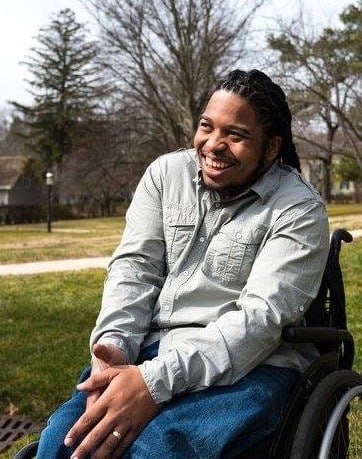
The power of presence and connection is something he experienced in his Baptist church of origin, “where the deacons mentored us and the deaconesses and the mothers of the church had a hand in shaping the young people.” And he’s experienced it since. “There were a lot of folks who had a hand in my success over the years.
“I really believe that if we’re going to thrive as a people, it really comes down to us being committed to our interconnectedness. I even think that applies to the environment.”
In his disabilities work — and as someone who uses a wheelchair — he has learned that authentic connection and presence must go beyond cosmetics.
“Churches do often ask, both in theory and in practice, ‘How can we get people with disabilities into the building,’” he said. “Getting us in does not mean that we are welcome. It is just a first step. You can welcome me into the church with a ramp or elevator, but that doesn’t necessarily say that you’re welcoming my contributions.
“Communities of faith must ask, how can we create the space for people with disabilities to be welcomed, tell their stories and utilize their gifts to enrich the life of the community, and most importantly affirm their sacredness, just as they are?”
‘Tables can obstruct’
The work must extend beyond the church’s walls, too, he said.
“Both in the church and in society, disabilities must be understood as not something needing to be fixed, but instead as something worth celebrating. Disabilities reveal diverse ways of being and doing within the human community. If we’re being honest, being and doing as a person with disabilities isn’t always the easiest. Therefore, it is incumbent upon those who are not disabled to push for and to make the necessary changes that make our being and doing easier in the world.”
He noted the “table” metaphor heard often when churches and other organizations discuss inclusion. He’d like people to consider the table itself, and not just who’s around it. “The questions become, ‘Who are we setting the table for, who’s at that table, and what role does the table play in the conversation?’
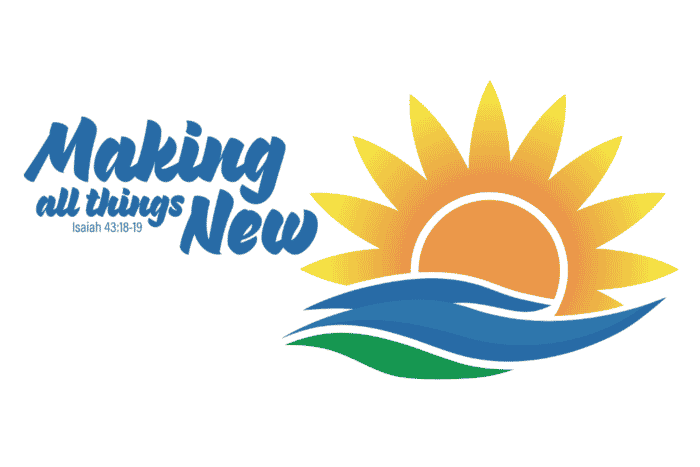
“We have a lot of conversations about tables and opening up tables. But tables are not always a good thing. Tables are not always inclusive. They can be obstructive. Are we talking about tables that are actually accessible, where people can bring their authentic voices and gifts? Or are we creating tables for assimilation?”
‘At the intersections’
Flag said there are multiple communities he wants to make proud as a Synod preacher.
“There’s a sense of pressure to make sure that I represent the communities that I represent well,” he said. “I live at the intersection of several communities — as a fairly young Black male in a predominantly white denomination, and with a fairly visible disability as someone who navigates the world in a wheelchair.”
Also, he said, “there’s a great sense of honor” in being invited to preach at Synod and to address its theme, “Making All Things New.” “I hope that, in some way, people will see these intersections and say, ‘These folks have something to offer to the betterment of our community and the flourishing of our denomination.’
“Most of all, I hope that people will leave encouraged as they think about what God is up to within the UCC and beyond.”
Content on ucc.org is copyrighted by the National Setting of the United Church of Christ and may be only shared according to the guidelines outlined here.
Related News
Who’s Next?
This week the Supreme Court agreed to oral arguments on the challenges to Presidential...
Read MoreGender and Sexuality Justice Ministries joins global movement to end violence against women, children
The Gender and Sexuality Justice Ministries (GSJM) of the United Church of Christ has joined...
Read MoreUCC and United Church of Canada celebrate a decade of ‘shared mission, mutual accountability, common hope in Christ’
Ten years ago, the United Church of Christ (UCC) and The United Church of Canada (UCCan)...
Read More